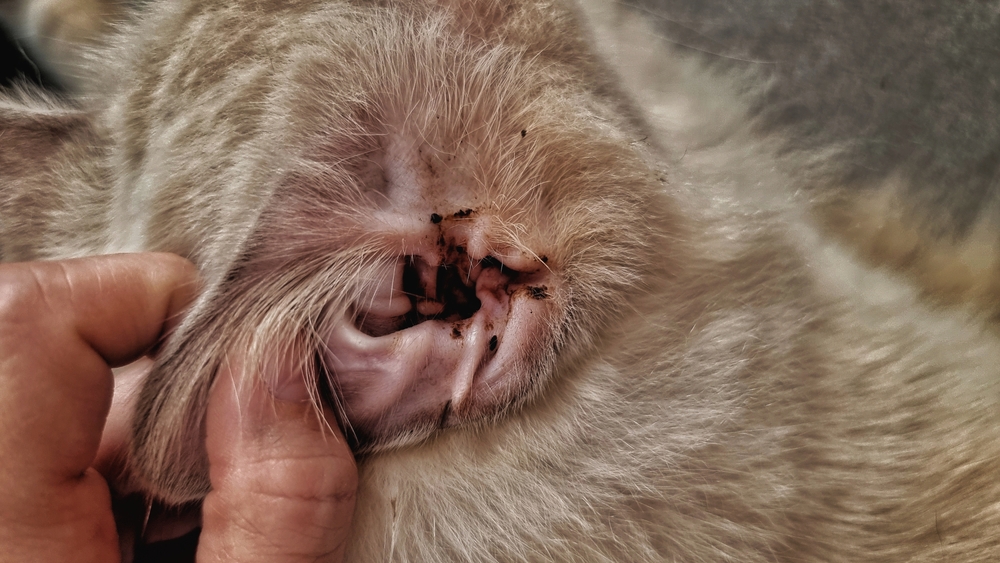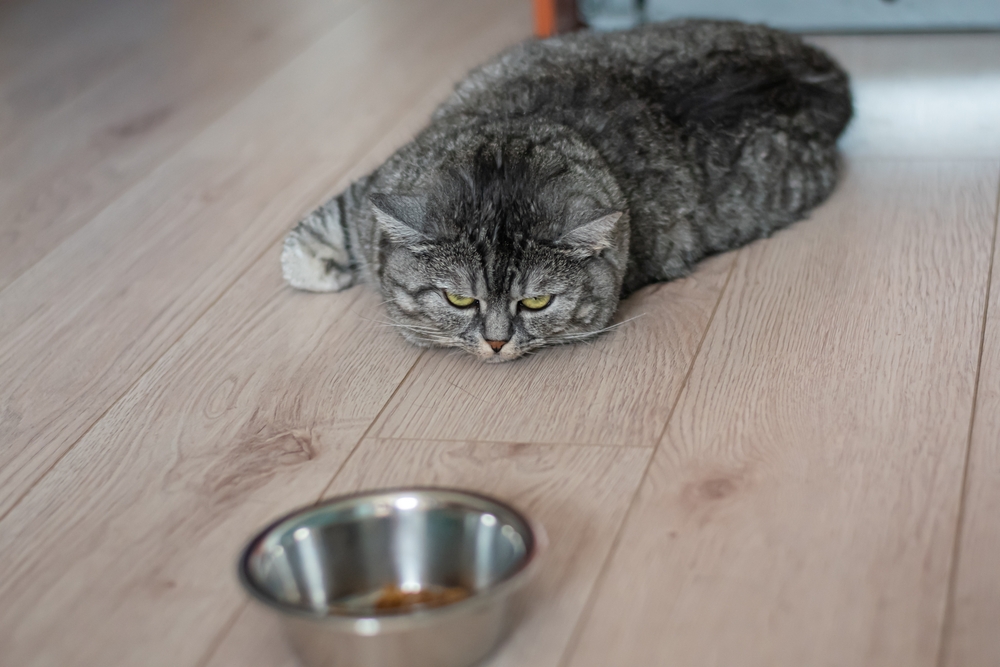No matter how close your bond is with your pet, you cannot read their mind. But, when your furry friend is experiencing discomfort or pain, paying close attention to their subtle clues will help you recognize their distress. When you recognize the signs of health issues early, you can make a significant difference by ensuring prompt treatment and a better outcome. Our Southern Kern Veterinary Clinic team shares health signs in pets that you should never ignore, along with explanations of why these signs are critical.
Appetite changes in pets
A sudden increase or decrease in your pet’s appetite can signal a wide range of underlying health problems. Appetite loss may indicate dental issues, gastrointestinal (GI) problems, infections, or chronic diseases like kidney failure or cancer. Conversely, an increased appetite, especially if coupled with weight loss, could be a sign of diabetes, hyperthyroidism, or other metabolic disorders.
Watch for these warning signs:
- Complete refusal to eat for more than 24 hours
- Noticeable decrease in food consumption
- Sudden ravenous hunger
- Weight changes
Unexplained weight changes in pets
Significant weight changes can be symptomatic of various health issues. Weight loss may suggest problems like intestinal parasites, diabetes, hyperthyroidism, or cancer. Weight gain, especially if rapid, could indicate hypothyroidism, Cushing’s disease, or fluid accumulation caused by heart disease.
Monitor your pet for:
- Visible ribs or spine
- Increased abdominal girth or bloating
- Noticeable weight changes, despite normal eating patterns
Lethargy in pets
While pets normally have occasional lazy days, prolonged lethargy may be a red flag that indicates pain, anemia, heart disease, infections, or chronic illnesses. Pets who are usually active but suddenly become listless should be evaluated.
Keep an eye out for:
- Reluctance to play, walk, or engage in normal activities
- Excessive sleeping
- Difficulty getting up or moving
Persistent vomiting or diarrhea in pets
Occasional vomiting or diarrhea may not be cause for concern, but persistent episodes can lead to dehydration and indicate serious conditions, such as infections, pancreatitis, dietary indiscretion, or toxic ingestion. Chronic GI issues need prompt attention to prevent severe complications.
Monitor your pet for:
- Vomiting more than once in 24 hours
- Diarrhea lasting more than 24 hours
- Presence of blood or unusual color in vomit or stool
- Accompanying signs like lethargy or pain
Thirst changes in pets
Increased or decreased water intake are important clues that indicate various health concerns. Excessive drinking and urination may point to diabetes, kidney disease, or hormonal imbalances like Cushing’s disease. Reduced water intake could indicate an underlying illness causing nausea or discomfort.
Watch for the following warning signs:
- Drinking significantly more or less water than usual
- Frequent urination or accidents in the house
- Straining to urinate or changes in urine volume
Difficulty breathing in pets
Breathing difficulties are always a medical emergency. They can be caused by respiratory infections, heart disease, asthma, or airway obstructions and require immediate veterinary attention to determine the cause and initiate appropriate treatment.
Keep an eye out for:
- Rapid or labored breathing
- Coughing or wheezing
- Blue or pale gums
- Open-mouth breathing (in cats)
Skin and coat changes in pets
Your pet’s coat and skin are indicators of overall health. Skin infections, external parasites, allergies, hormonal imbalances, and nutritional deficiencies can manifest as coat or skin changes. Persistent itching, hair loss, rashes, or lumps require veterinary evaluation.
Monitor your pet for:
- Excessive scratching or licking
- Redness, swelling, or sores
- Hair loss or bald patches
- Unusual lumps or bumps
Behavioral changes in pets
Sudden behavioral changes can signal pain, neurological issues, or emotional distress. For instance, aggression in a normally friendly pet may indicate discomfort or fear. Similarly, hiding, vocalization, or sleeping pattern changes can suggest underlying health concerns.
Watch for:
- Increased aggression or irritability
- Withdrawal from social interactions
- Sleeping pattern changes
- Unusual vocalizations
Bad breath in pets
While unpleasant breath after a meal is common, a persistent foul odor can indicate dental disease, GI issues, or systemic conditions like kidney disease. Dental health is often overlooked but is crucial for your pet’s overall well-being.
Monitor your pet for:
- Strong, persistent bad breath
- Red or bleeding gums
- Difficulty eating or chewing
- Excessive drooling
Eye and ear issues in pets

Eyes and ears are susceptible to infections, allergies, and injuries. Redness, discharge, or swelling can indicate infections or chronic conditions that require treatment to prevent complications such as vision or hearing loss.
Watch your pet for:
- Red or swollen eyes
- Excessive tearing or discharge
- Ear redness or swelling
- Unpleasant odor from ears
Observing your pet’s health and acting quickly can prevent minor issues from becoming major problems. Schedule an appointment with our Southern Kern Veterinary Clinic team if your furry friend is behaving unusually or you see physical changes.

